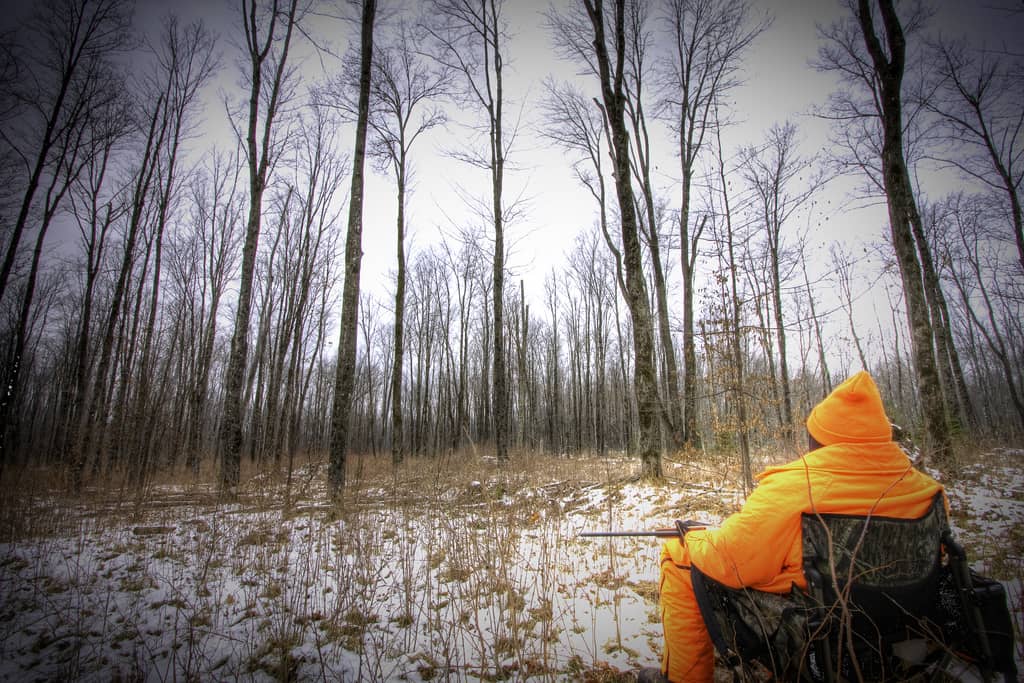Sunday Hunting Law Changes on the Horizon
Dave Maas 08.18.16

Many moons ago, “blue laws” were established in America. The purpose of these laws was to prohibit certain activities from taking place on Sundays so religion could take center stage. In order to make sure people were getting in a day of worship, they were banned from doing other things, such as hunting on Sundays.
Over time, most blue laws have been repealed, but some still remain. However, times are continuing to change, and the states that prohibit Sunday hunting are dwindling in number.
As it stands currently, 11 states have some form of ban still in place when it comes to Sunday hunting. Of these 11, South Carolina and Virginia allow it only on private lands and public waterways. West Virginia allows hunting on Sundays only on private land in some counties. North Carolina, Maryland, Pennsylvania, New Jersey, and Connecticut have limitations in place that give limited opportunity to hunt on Sunday, but not overall access. Maine, Massachusetts, and Delaware all had a full ban on Sunday hunting, but Delaware has set forth in pursuit of change.
Introduced back in March 2016, Delaware’s HS1 for HB 289 passed both the House and Senate with flying colors. While this is plenty about which to get excited, this is not a full repeal of the blue law ban. It does, however, allow deer hunting on private land as long as permission is given by the property owner. Also now an option are five designated Sundays per season that will allow hunting on open public land at the discretion of the Delaware Department of Natural Resources and Environmental Control. Although the progress is less than we “weekend warrior” hunters might like, the passage of litigation such as this is still a step forward in the right direction.
There are many reasons to support bills such as HS1 that not only benefit hunters but people as a whole. Allowing Sundays to become a hunting option creates jobs, stimulating the economy by increasing the need for open businesses that are able to sell equipment and licenses on days they might otherwise be shuttered. It is also important to consider that people who work Monday through Friday and have other engagements on Saturdays often have only Sunday as a day to themselves. When unable to hunt on Sundays, those people are likely to let licenses lapse and not renew. Their children, frequently occupied with school and athletics from Monday through Saturday, also won’t be learning to hunt and creating generations of conservationists to come that would have both managed game populations and developed a revenue stream all their own.
Some have made the argument that maintaining Sunday hunting bans is necessary to avoid depletion of game animals. That has not been an issue, however, as states that allow such hunting opportunities have thriving game animal populations. In fact, some states have even had to have deer culls in order to get down to a more manageable number because hunters are not harvesting enough. One example of this was the Ann Arbor deer cull earlier this year, which was specifically intended to dispatch 100 deer due to people complaining about negative encounters, such as deer damaging their landscaping.
As the needs of the population continue to change, we can only hope that antiquated blue laws continue to catch up. The steps taken by this new legislation in Delaware definitely make some long overdue progress, although ideally more is yet to come.
In states that allow Sunday hunting, archers and gun hunters can go to church in the morning and then spend high-quality time in the field with family and friends in the afternoon. Sounds like the perfect Sunday!

